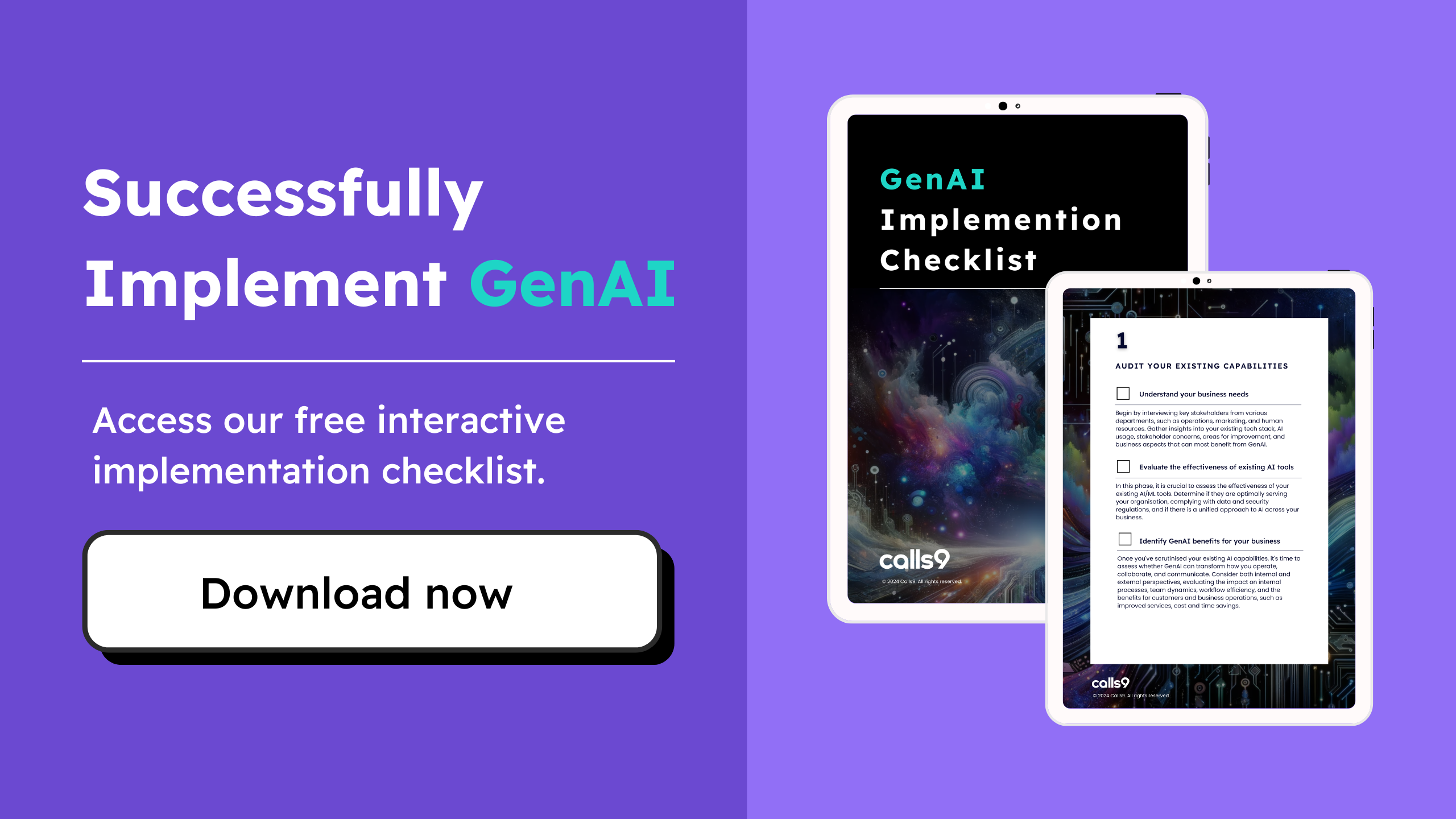Imagine a future where your customer service operates around the clock, providing personalised responses to every unique query, and learning from each interaction to deliver an even more refined service. Intriguing, isn't it? Now, what if we told you that this future is already here, powered by generative AI agents? Developed on the cutting edge of machine learning research, systems like ChatGPT, an advanced language model created by OpenAI, are transforming the way businesses interact with their customers. But what does this mean for your organisation? How could integrating such a technology redefine your customer service strategy, and more importantly, how can you unlock its full potential? Let's delve into the exciting world of Generative Agents and discover how they're revolutionising customer service as we know it.
What Are Generative Agents?
Generative Agents, a cutting-edge concept introduced in the research paper titled "Generative Agents: Interactive Simulacra of Human Behaviour," are computational tools adept at mimicking human behaviour in an interactive and believable manner. Unlike traditional rule-based AI, generative agents don't just follow a script – they are equipped with the ability to remember, retrieve, reflect, and interact with others while continuously adapting to ever-changing circumstances, much like an astute customer service representative.
The Impact of Generative AI Agents on Customer Service Challenges
The current customer service industry faces significant challenges, such as managing high attrition rates, maintaining consistency in service quality and meeting ever-evolving customer expectations. GenAI agents can not only provide solutions to these challenges but also drastically revolutionise the customer service experience.
Imagine a customer service scenario where the agent remembers your past interactions, preferences, and behaviours and anticipates your needs. By leveraging the powerful prompting capabilities of Large Language Models, Generative AI Agents can provide this level of personalisation, effectively transforming the customer service landscape.
The Benefits of Generative AI Agents
The potential of generative AI agents to entirely reshape the customer service industry is immense, and here's how:
Crafting Engaging Customer Interactions
GenAI agents can construct dynamic simulations of human behaviour, offering you the opportunity to create engaging customer experiences. These agents can mimic the conduct of a skilled customer service advisor, delivering bespoke assistance to each individual customer. This approach could elevate the service experience for your customers, making it more interactive and fulfilling.
Cost reduction and increased efficiency
GenAI agents are capable of operating 24/7, reducing the need for extensive staffing during non-peak hours and bank holidays. Also, their ability to handle multiple inquiries simultaneously eliminates bottlenecks, ensuring that customers are not left waiting. This all translates into faster response times and more satisfied customers, without the significant investment in human resources, thus allowing businesses to reallocate funds and focus on other critical areas of operation.
Explore case studies on how global leaders like Klarna, H&M and Best Buy use generative AI agents to enhance customer experience

Interactive Training for Customer Service Representatives
For training purposes within your customer service division, these generative AI agents can prove highly beneficial. They can generate various customer scenarios, providing new customer service staff with realistic training situations. This can aid in enhancing the quality of customer service your business delivers.
Investigating Customer Behaviours and Preferences
GenAI agents can be utilised to explore customer behaviours and inclinations. This can yield valuable insights, allowing you to optimise your customer service strategies and protocols. For instance, your business can trial varying approaches to customer service and gauge the responses from the generative agents, which stand-in for actual customers.
Generative AI Agent examples in four different sectors
#1 Generative AI Agents in the Legal Context
Imagine needing immediate advice regarding an urgent contractual clause. You access your law firm's website and interact with their GenAI agent. It asks the nature of your issue and you respond with the troublesome clause. Unlike a rule-based chatbot which could offer generic information, the generative agent understands the context, runs an analysis of the clause and provides a tailored, detailed response, explaining the potential implications in plain English. It feels like interacting with an experienced lawyer, providing not just immediate help but an understanding of your specific situation.
#2 Generative AI Agents in the Healthcare Context
Suppose you're feeling unwell in the middle of the night with a strange set of symptoms. You log onto your healthcare provider's website and start a chat with their GenAI agent. It inquires about your symptoms, history and current medications. It doesn't just cross-reference symptoms with a static database; it understands the complex interplay between symptoms, medical history, and drugs, and guides you on the next best step, maybe suggesting an immediate virtual consultation for your condition. The interaction feels empathetic and genuinely concerned about your well-being, something that is hard to achieve with rule-based chatbots or standard customer support.
#3 Generative AI Agents in the Educational Context
You're studying for an exam and there's a complex concept you can't grasp. You reach out to your university, school or online learning platform's GenAI agent. You explain the concept and where you're struggling. Instead of supplying a pre-set answer or definition, the agent gauges your understanding, asks probing questions, and breaks down the complex idea into simpler, manageable parts, tailoring the explanation to your level of comprehension. It feels like a personal tutor, demonstrating patience and an adaptive teaching method to ensure you fully understand the concept. This level of personalisation is a marked departure from traditional rule-based AI chatbots and generic customer support.
#4 Generative AI Agents in the Welfare and Charity context
Explore the proof of concept agent we created in collaboration with the University of Law to help people get the right advice for their situation even if they don't speak English.
Potential Challenges of Generative AI Agents
While GenAI agents bear promising potential, they also bring certain challenges. Initial integration of these agents into operations may require substantial investment, which could be a potential deterrent for some businesses. Further, issues surrounding customer privacy and data handling must be carefully managed as AI evolves. Ensuring generative agents respect customer privacy and use customer data responsibly is paramount.
Another aspect is the possible resistance from employees worried about job displacement. In the long run, however, GenAI agents could increase overall efficiency, allowing employees to focus on more complex tasks rather than mundane, repetitive ones.
As we tread further into the age of AI, generative AI agents are set to redefine customer service, providing a more engaging, personalised, and efficient customer experience. For businesses ready to embrace the transformative potential of these GenAI agents, the future holds immense promise. By facing the challenges and harnessing the benefits, we can shape a future where AI doesn't just enhance the customer service experience - it revolutionises it.
Want a step-by-step process to implement GenAI? Access our interactive checklist today.

Creating Bespoke Agents for Your Business
It could sound challenging but building bespoke GenAI agents for your business provides distinct advantages. It allows you to tailor your customer service approach, leading to a highly personalised and efficient customer experience. This level of personalisation can lead to increased customer loyalty, higher customer retention rates, and, ultimately, improved business performance.
However, as mentioned previouesly the adoption of generative AI agents isn't without its challenges. These may include the initial investment and technical complexity associated with implementation, data quality concerns, and potential security and privacy challenges. But with adequate planning, collaboration with the right technical partners, and a robust data management strategy, these hurdles can be effectively managed.
Getting Started with End-to-End AI Transformation
Partner with Calls9, a leading Generative AI agency, through our AI Fast Lane programme, designed to identify where AI will give you a strategic advantage and help you rapidly build AI solutions in your organisation. As an AI specialist, we are here to facilitate the development of your AI strategy and solutions within your organisation, guiding you every step of the way:
- Audit your existing AI capabilities
- Create your Generative AI strategy
- Identify Generative AI use cases
- Build and deploy Generative AI solutions
- Testing and continuous improvement




